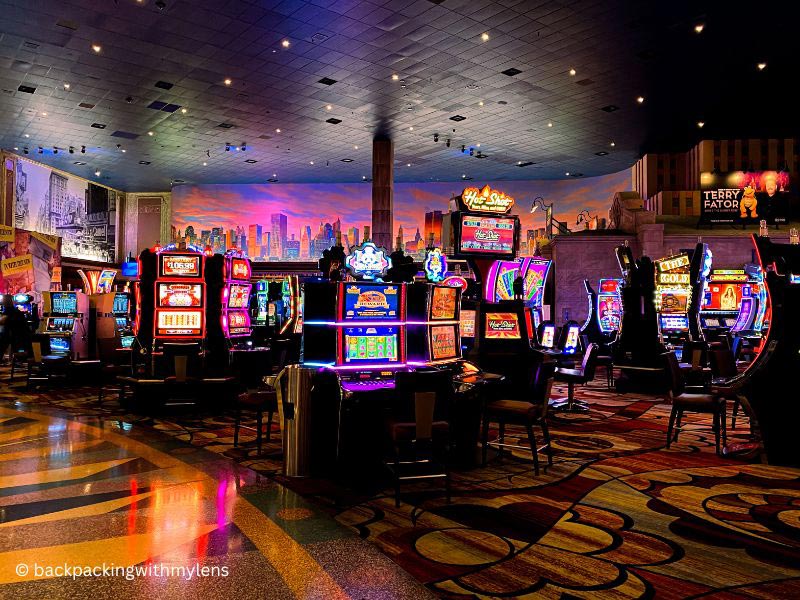
Casino entertainment have long been an integral part of human culture, providing not just entertainment but a captivating reflection of our hopes, dreams, and fears. From the spinning reels of a slot machine to the skill-based strategies of poker, these games represent a range of human sentiments and events. At their core, casino games are more than a chance to earn cash; they are a microcosm of life itself, where risk versus reward merge and luck can change in an eye blink.
As players assemble around tables or sit in front of brightly lit machines, they engage in a ritual that transcends mere betting. These games mirror our natural desires for relationships, adventure, and the search for fortune. They also unveil deeper truths about human behavior, such as our relationship with chance and the adrenaline of uncertainty. In exploring casino games, we discover not only the rules of play but also the rich tapestry of the human journey, showcasing our intertwining narratives of goal and reality.
The Mind Behind Gambling
Gambling is intrinsically connected in human psychology, tapping into various feelings and desires. The thrill of risk-taking is a core aspect that draws players in, be it it’s excitement of spinning a roulette or the excitement of drawing a winning card in a poker game. This rush of adrenaline is frequently likened to other forms of thrill, as the unpredictability of outcomes elicits a distinct psychological response. Gamblers often become captivated by the chance of striking it rich, leading to an irresistible draw toward gambling games.
Additionally, a crucial component of the psychology behind gambling is the concept of hope and aspiration. Participants often nourish dreams of financial freedom and the luxurious lifestyle that can follow winning. This hope fuels their ongoing participation in gambling, as it provides a sense of purpose and the belief that a transformative win could be just one wager away. The narrative of overcoming odds and finding success resonates with many, reinforcing their dedication to play and involve themselves with these games.
Finally, social dynamics play a crucial role in gambling psychology. Gambling venues are designed to foster social interaction, where players gather to share the journey of wins and losses. This shared aspect not only amplifies enjoyment but also affects behavior, as individuals often mimic the actions of others in their vicinity. The collective approval found in mutual thrill can magnify the emotional experience, making casino games a mirror of not just personal desires but also collective engagement within the gambling community.
## The Dual Nature of Risk and Reward
Gambling games embody the fragile balance between risk and reward that resonates deeply with the human experience. The thrill of placing a bet is often accompanied by a surge of excitement, as participants are confronted with the possibility of a huge payout, yet fully aware of the possibility to suffer losses. This dual experience reflects a fundamental aspect of life: the decisions we face often come with intrinsic risks, and the chase for gain can drive us to take chances we might not typically consider. In this way, casino games reflect real-world choices, enticing players to risk not just their funds, but also their aspirations.
The allure of grand jackpots and payouts fuels a sense of optimism, encouraging players to dream of a brighter future that could arise from a fortunate turn of the roulette or turn of a card. This optimism can drive individuals to engage in more daring actions, urging them to push their boundaries in search of economic benefit. However, just as in life, the results of these decisions can lead to both triumph and loss. The narratives of both big winners and those who have faced losses everything at the casino demonstrate the random nature of luck and its impactful effect on our lives.
Ultimately, the experience of engaging with gambling activities serves as a vivid illustration of the human condition. Every round played is filled with the tension of uncertainty, as players weigh the gains against the risks. This interaction not only highlights the thrill that comes with betting but also exposes the vulnerabilities that come with the desire for more. As we explore the complexities of choice and results in both the gambling world and in life, we find that the search for benefit shapes our identities and journeys in deep ways.
Culture and Loneliness in Gambling Environment
Casino environment is a unique blend of social engagement and personal endeavor, reflecting the dualities of human experience. Gamblers often come together around tables, sharing in the thrill of the game, rejoicing in wins, and commiserating over losses. This social aspect is crucial, as it creates a sense of community and camaraderie among diverse groups of individuals. Regular attendees to gaming establishments may build friendships and establish routines, turning the gambling venue into a alternative home where they experience linked to a greater community of gamblers.
However, the appeal of gambling games can also result to loneliness. As players become engrossed in the excitement of gambling, they may isolate from personal connections or neglect to interact with the environment outside the gaming space. For some, the search of a jackpot can overshadow real relationships, leading to loneliness. The experience of being among others yet feeling solitary is not uncommon, as the attention shifts from shared enjoyment to the individual concerns of each player’s journey.
This interplay of society and isolation creates a vivid tapestry that defines casino culture. It showcases the complexity of human interactions, where happiness and sorrow coexist. Casinos serve as both a sanctuary for social engagement and a stage for individual challenges, illustrating how intimately entwined our desire for connection and the individual quest for fortune can be. gokken met bitcoin In navigating this environment, gamblers confront their own stories—seeking both the thrill of the wager and the fellowship of other gamblers, ultimately reflecting the wider spectrum of human experience.
